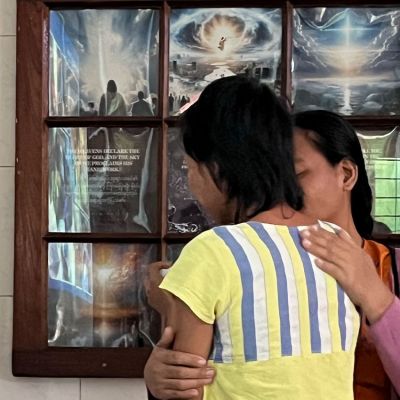Written by Dr. Alex Ip (Director, CEDAR Fund)
Scriptures reading:
What is structural sin? Slavery is certainly an excellent example. Structural sin has at least two characteristics. On the one hand, it is difficult for people in the system to escape from it, and everyone has a part to play. On the other hand, the system is intertwined from values to practices, and everything seems to be reasonable. The Roman system of slavery had these two characteristics: in the first century, about one-third of the Roman Empire was in slavery, on a scale rarely seen in history, and with an unimaginable extent of penetration. Families of all sizes had slaves to help them. So just about everyone was involved in the system in one way or another.
Accepting the system’s rationality is easy when we are all participants or have a vested interest in it. To get the Roman masses to accept slavery, the regime provided a ‘reasonable’ justification. Legally, they defined enslaved people as objects, incorporating laws protecting slaves within regulations concerning objects rather than human beings. In terms of values, they took over the Greek theory of natural slavery and explained slavery as necessary because human beings have different natures. Some individuals required management to sustain their livelihood.
In Philemon 10-12, Paul deliberately describes Onesimus as his son and whom he considers his very heart. These two descriptions are not accidental; they are the rhetorical effect of Paul’s intentional use of two words that are used to describe a very close relationship with a slave who is seen as an object. This rhetorical approach is meant to shock Philemon into reconsidering his perception of Onesimus as an object. Paul tries to instil Philemon with his values in the hope that Philemon will follow in his footsteps and change his deep-rooted view of slaves.
Let’s Think
- Do we now have appropriate relationships with people, the world, and our brothers and sisters according to the Lord’s teachings and Jesus’ example?
- How can we rebuild distorted relationships?
Put into Practice
Find a friend every day who is seen as ‘lower class’ in the world, e.g., lower status in the workplace or due to social prejudices; talk to that person and learn to communicate with him/her with equality, respect, and love.
ARTICLES OF THIS ISSUE
Written by Clara Chiu (Head of Partnership Development) In February this year, my colleague and I went on a field trip…
Written by Dr. Alex Ip (Director, CEDAR Fund) Scriptures reading: Philemon 10-12 10 That I appeal to you for my son On…
Written by Dustin Tang (Donor Services Officer) Nepal is one of the countries where human trafficking is rampant. Traf…
Written by Ken Wong (Communications Officer) The problem of transnational human trafficking has become increasingly se…






